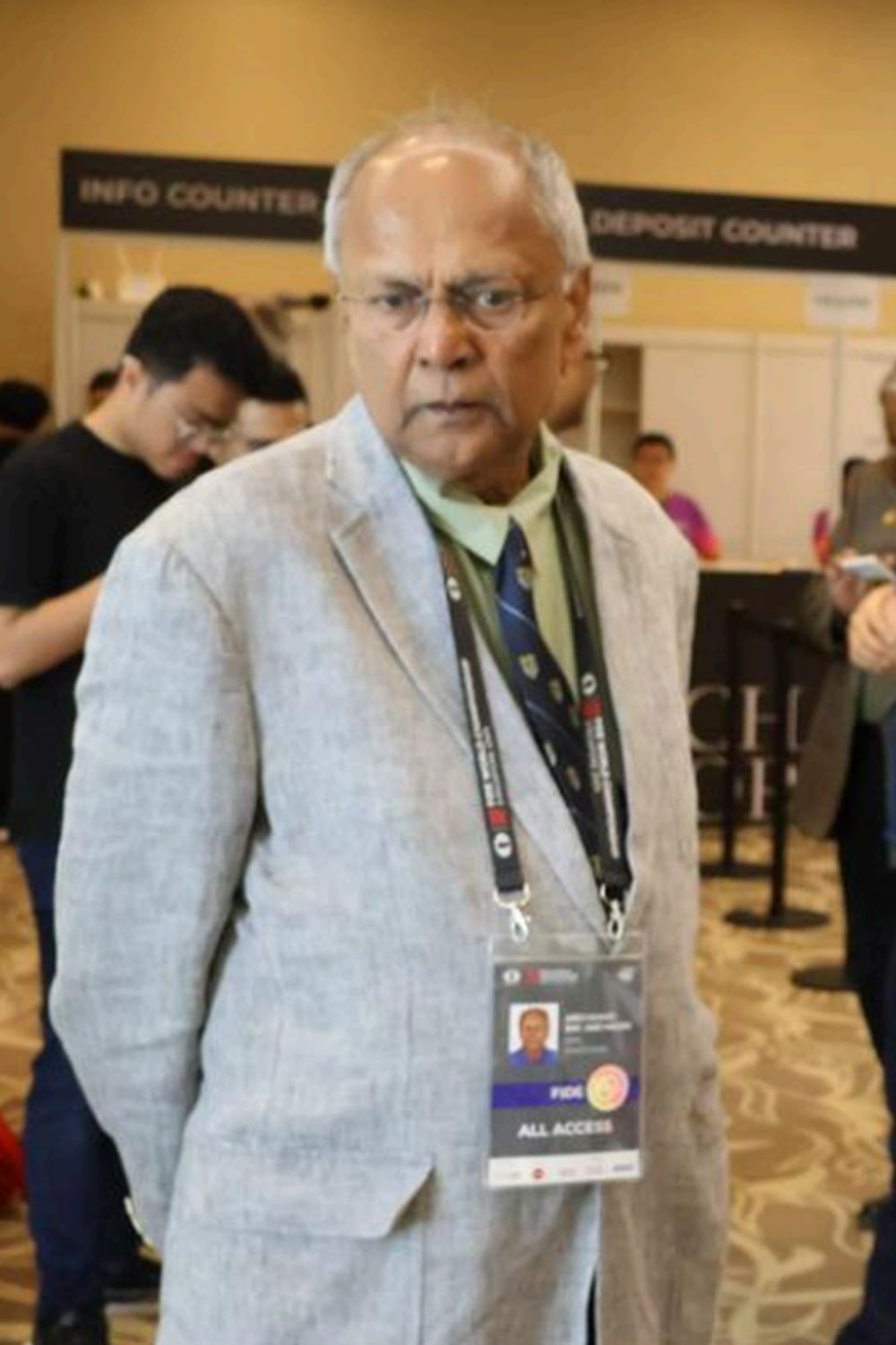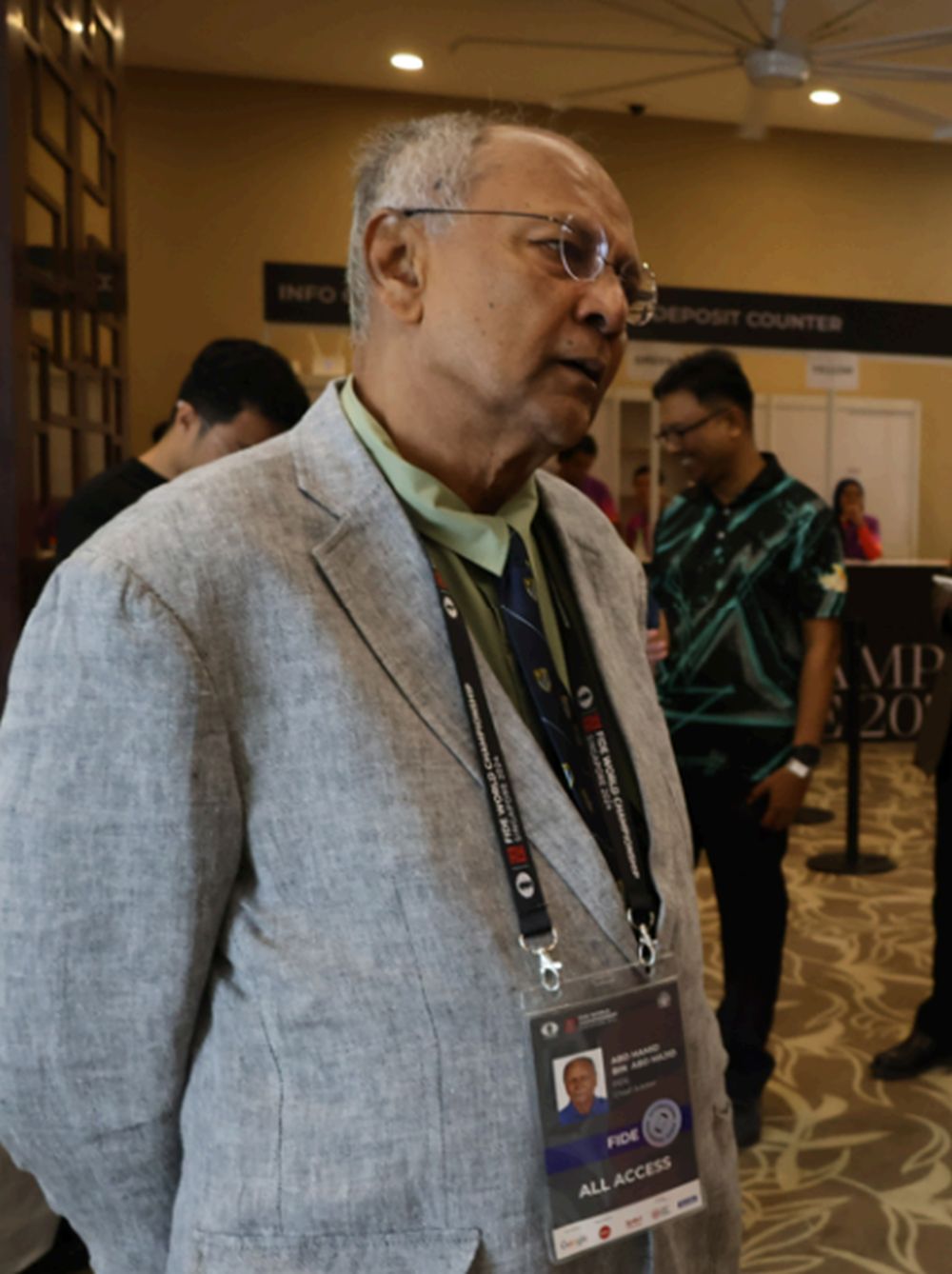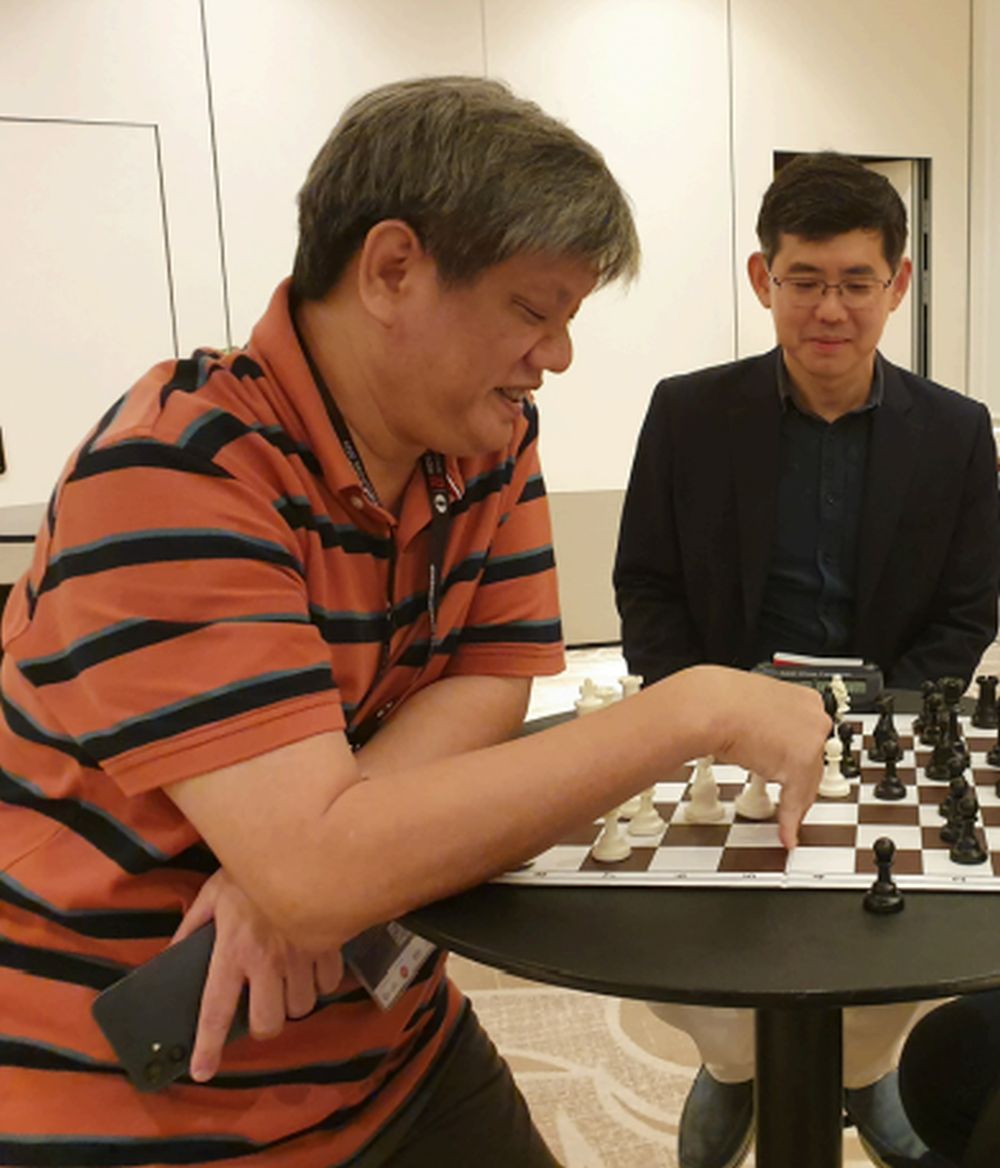Interview with the Chief Arbiter of the World Chess Championship Abd Hamid Abd Majid
Abd Hamid Abd Majid is a very well-known name in the chess fraternity. He has dedicated over 30 years to the art of arbitration. From his early days officiating Malaysia vs. Singapore challenge matches to presiding over the most prestigious World Championship, Hamid has always prioritized fairness and professionalism. He is the first Malaysian to officiate at the World Chess Championship. In this exclusive interview with Junior Tay, he shares the joys and challenges of being an arbiter, the importance of staying composed, and why he believes he was chosen for this critical role. Photo: WFM Yip Fong Ling
Decades of dedication
I was first acquainted with IA Hamid in the early 1990s, as he officiated many Malaysia vs Singapore challenge matches with IA Ignatius Leong just before I got to play in the 1992 Commonwealth Championships in Bangi, Malaysia. It was a pleasant surprise to see that he is now the Chief Arbiter of the World Championship Match and thus it was timely to check out his thoughts on chess arbitering and why he thought he was picked for this important task.

Junior Tay (JT): What do you enjoy most about being a professional arbiter?
Abd Hamid (AH): It's nice to see a successful completion of a chess game. For me, I really feel happy when it's finished because nothing went wrong, and we had a definite result, and this is good.
JT: What are the challenges in arbitrating at this level?
AH: Sometimes the players can be a little bit unreasonable and have their own peculiar requests. You have to listen and tolerate when this comes up. It's so important for conditions to be equal for both players.
JT: What's a typical day for you, officiating in the World Championships?
AH: It's breakfast, lunch, and dinner (smile). Number one, you have to prepare and be prepared. Revise the laws and read the regulations. Number two, you have to make sure that they have the new devices (DGT, anti-cheating, and fair play setups in order. Luckily, this year round, we have a fairplay officer, so part of the job of chief arbiter is taken away and given to fair play arbiters to do. And then, you can never say what will happen in the course of the game. I remember one of the play-offs in the World Championships, the DGT as well as the clock stopped suddenly. So you have to make contingencies for all these kinds of things.
JT: What is your number one focus when you are officiating?
AH: We have a sort of a discipline. There are two arbiters. You keep track of both. I keep track of one, and the other arbiter keeps track of the other.

Photo: WFM Yip Fong Ling
JT: For aspiring arbiters who want to officiate at a high level, what kind of advice would you want to give them?
AH: First and foremost, if they have changed their regulations, try to understand why they have done this. They must have a reason for doing what they are doing. For example, at this World Championship match, 120 minutes for 40 moves without increments is the first part of the time control. For the players, the game sometimes gets critical because of the time. But there must be a reason for this. Later, I found out that they wanted some excitement in the World Championship matches. And this is the reason. So you have to keep up to date, number one. Number two, you must maintain your composure. This is very important.
JT: So, what do you think your arbitering style is?
AH: You know, I want the players to feel comfortable. They are the heroes. The publicity for the WCC is a must! And I would like the match to conclude in a good way. If this is done, I'll be happy. I just want the game to conclude well.
JT: Why do you think you were chosen to officiate this very important match?
AH: I've been an arbiter for more than 30 years. I have not had any scandals. I like to think that people always consider me as an impartial arbiter. And after all these years, if they call me, I feel it's a kind of reward for all the work I've done over the years. Basically, it's a good thing.
JT: Thank you for your time!
About the author

A chess author, editor, and coach for the past ten years after being a school teacher for 17 years, Tay is a former National Rapid and Cairnhill Open Champion and has represented Singapore in international events including the Asian Team Championships.



